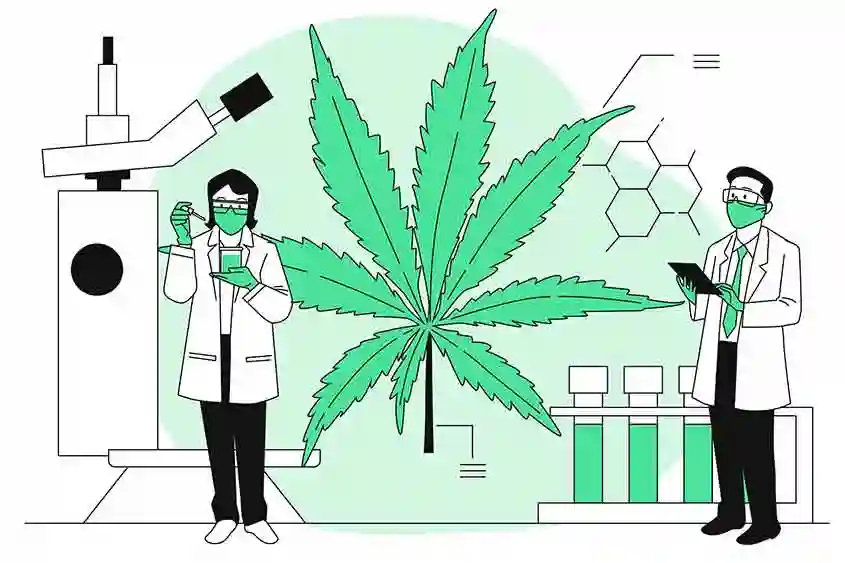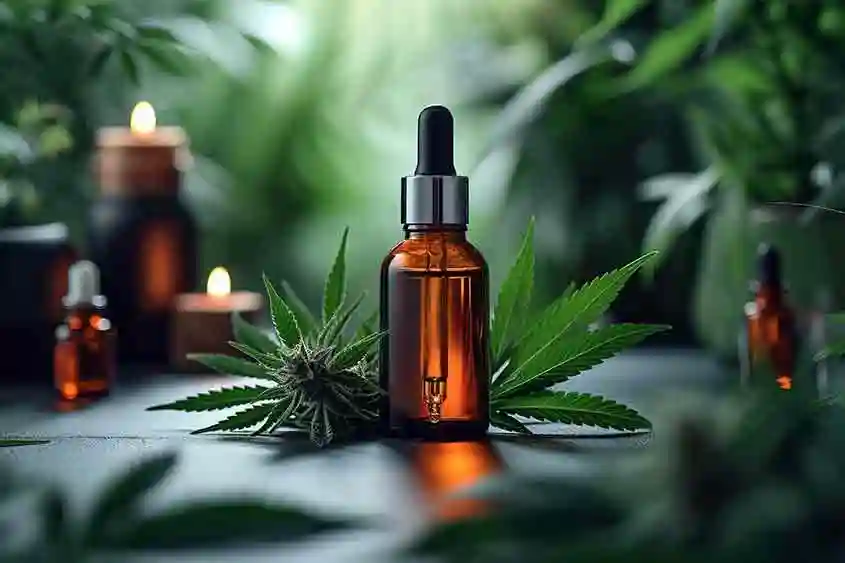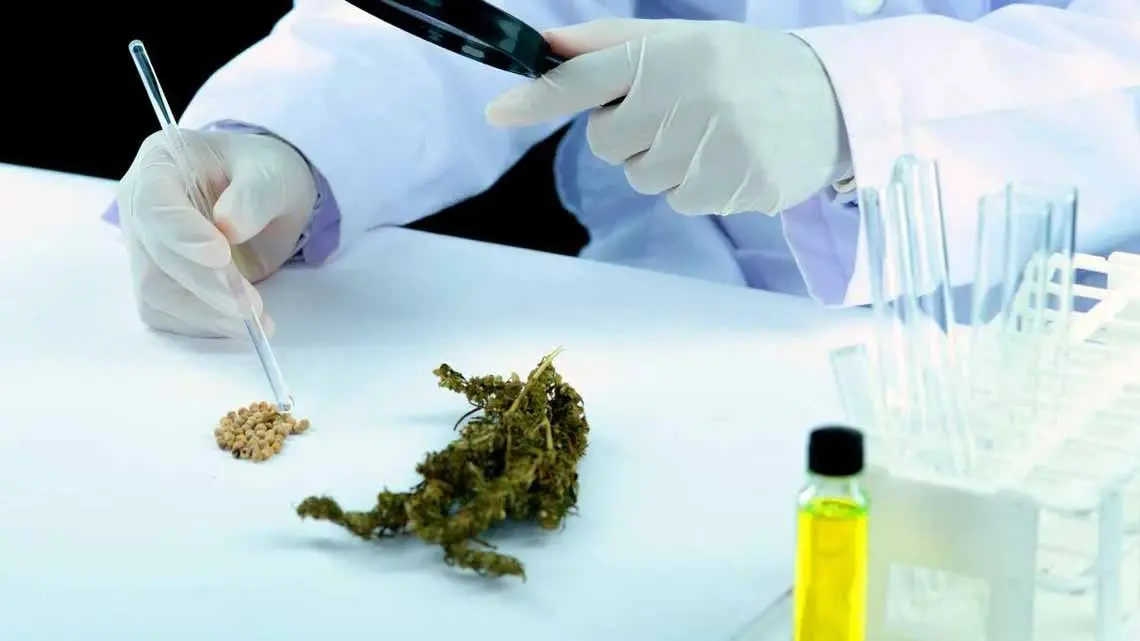In recent years, the United States has undergone a transformative phase in its stance on cannabis legislation. This shift has seen a growing number of states not only embracing medical cannabis but also taking the bold step of legalizing its recreational use. However, amid these changes, a fundamental question arises: are medical and recreational cannabis the same?
To truly understand the complexities of cannabis legalization, it’s essential to understand the difference between medical and recreational cannabis. While both fall under the umbrella of cannabis, they serve different purposes. They operate within unique regulatory frameworks. In this blog, we will try to unravel the subtle yet critical differences that define these two distinctions of the cannabis landscape.
Medical Marijuana: A Personalized Treatment Approach
Prescription and Regulation
Medical marijuana is administered by healthcare professionals to patients meeting specific criteria outlined in state laws. Its primary purpose is to alleviate symptoms associated with qualifying medical conditions. The goal is of course, to enhance patients’ quality of life.
The prescription and use of medical marijuana are subject to stringent regulatory oversight. Patients are required to adhere strictly to legal guidelines governing its acquisition, possession, and consumption. This ensures responsible usage and patient safety.
Tailored Therapy for Specific Needs
Unlike recreational cannabis, medical marijuana is not intended for casual or non-medical use. It is prescribed based on individual medical needs and responsiveness to conventional treatments. Healthcare providers consider various factors, including medical history and specific symptoms, to recommend the most suitable cannabis-based therapy.
Diverse Forms for Personalized Treatment
Medical cannabis is available in various forms including tinctures, edibles, topical creams, and more. This diversity allows for tailored treatment approaches that cater to different medical conditions and patient preferences.
In summary, medical marijuana offers a personalized treatment approach tailored to individual patient needs. Its careful prescription and regulation ensure responsible usage and therapeutic benefits. Overall, it contributes to improved quality of life for patients with qualifying medical conditions.
The Health Benefits of Medical Cannabis

Understanding the health benefits associated with medical cannabis sheds light on its medical applications. Also, it distinguishes its purpose from recreational use.
1. Therapeutic Properties
The therapeutic properties of medical cannabis are attributed to cannabinoids, such as THC (tetrahydrocannabinol) and CBD (cannabidiol), which interact with the body’s endocannabinoid system. These compounds can exert various effects that may help alleviate symptoms associated with medical conditions.
2. Common Medical Uses
Medical cannabis is prescribed for a diverse range of medical conditions, including:
- Chronic pain: Cannabis has analgesic properties that can provide relief for individuals suffering from persistent pain. This includes neuropathic pain or pain associated with conditions like arthritis.
- Nausea and vomiting: Medical cannabis is often used to manage nausea and vomiting induced by chemotherapy or other medical treatments.
- Muscle spasms: Conditions like multiple sclerosis (MS) can cause muscle spasms, and medical cannabis may help relax muscles and reduce spasms.
- Epilepsy: Certain forms of epilepsy, especially treatment-resistant epilepsy, may be managed with cannabis-based medications that reduce seizure frequency.
- Inflammatory conditions: Cannabis has anti-inflammatory effects, making it potentially beneficial for conditions like rheumatoid arthritis or inflammatory bowel disease.
- Mental health conditions: Research suggests that cannabis can help manage symptoms of anxiety, depression, and post-traumatic stress disorder (PTSD) in some individuals.
3. Reduced Side Effects
Compared to conventional medications, medical cannabis may offer a more natural alternative with potentially fewer adverse effects. This is particularly important for patients who experience intolerable side effects from traditional pharmaceutical drugs or who have not responded well to standard treatments.
4. Patient Testimonials
Many people report positive experiences and improvements in their quality of life with medical cannabis. Patient testimonials provide firsthand accounts of how medical cannabis has helped manage symptoms, improve daily functioning, and enhance overall well-being.
5. Research and Continued Discoveries
Ongoing research into the medicinal properties of cannabis continues to uncover new benefits. Studies exploring the use of cannabis-derived compounds (like CBD) for various medical conditions offer hope for expanded treatment options and improved patient outcomes.
Understanding the health benefits of medical cannabis highlights its role as a valid medical treatment. It also emphasizes the distinction from recreational use. Exploring its therapeutic potential helps individuals make informed decisions about using medical cannabis in their healthcare. Of course, healthcare professionals play a crucial role in administering medical cannabis.
Recreational Marijuana: Cannabis for Leisure

Legal Accessibility for Adults
Recreational marijuana is accessible to consenting adults in states where its use has been legalized. Unlike medical cannabis, recreational use does not require a medical diagnosis or specific health condition for purchase or consumption.
Non-Medical Enjoyment
The primary purpose of recreational marijuana is to provide enjoyment and relaxation for individuals seeking a recreational experience. It is used for leisure activities, socializing, and personal enjoyment rather than therapeutic purposes.
Legal Framework and Regulation
Recreational marijuana operates within a different legal framework from medical cannabis. There are specific regulations governing its sale, distribution, and use. These regulations are designed to ensure responsible consumption and public safety.
Diverse Product Offerings
Similar to medical cannabis, recreational marijuana is available in various forms and products. Some forms include edibles, smoking products, and concentrates. This diversity caters to different preferences and consumption methods among recreational users.
In summary, recreational marijuana represents a legal and accessible option for adults seeking cannabis purely for recreational purposes. It operates under a separate legal framework from medical cannabis and offers a range of products designed for non-medical enjoyment and relaxation.
Exploring Recreational Marijuana: Benefits and Considerations

Recreational marijuana, legalized in many states for adult use, offers unique benefits and considerations distinct from medical cannabis. Understanding the aspects of recreational use can provide insights into its role in society and how it differs from medical marijuana.
1. Social and Relaxation Benefits
One of the primary appeals of recreational marijuana is its ability to enhance social experiences and promote relaxation. Many adults use cannabis recreationally in social settings to unwind, enjoy leisure activities, and foster connections with others.
2. Creative and Enjoyment Enhancements
Recreational cannabis is known for its potential to enhance creativity and enjoyment of recreational activities. Some individuals use cannabis to elevate experiences such as listening to music, watching movies, or engaging in artistic pursuits.
3. Exploration of Different Strains and Products
Recreational users have access to a wide variety of cannabis strains and products, including edibles, concentrates, and infused beverages. This diversity allows for experimentation and exploration of different effects and consumption methods.
4. Considerations for Responsible Use
While recreational marijuana can offer benefits, it’s essential to consider responsible use practices, including:
- Legal limits: Adhering to legal possession and consumption limits specified by state laws.
- Avoid driving under the influence: Cannabis can impair motor skills and judgment. So, it’s crucial to avoid driving or operating machinery while under the influence.
- Monitoring consumption: Being mindful of individual tolerance levels and avoiding excessive use to prevent potential adverse effects.
5. Community and Economic Impact
The legalization of recreational marijuana has significant social and economic impacts. It creates jobs in the cannabis industry, generates tax revenue for local governments, and fosters discussions about responsible cannabis use within communities.
6. Legal Framework and Compliance
Recreational marijuana operates within a specific legal framework that outlines regulations for cultivation, distribution, and consumption. Understanding and complying with these regulations ensures the safe and legal recreational use of cannabis products.
Exploring the benefits and considerations of recreational marijuana highlights its role in enhancing social experiences and promoting relaxation. By emphasizing responsible use practices and understanding legal guidelines, one can enjoy recreational cannabis safely within the parameters of legalization and community expectations.
Key Differences Between Medical & Recreational Cannabis

Cannabinoid Composition
Medical and recreational cannabis vary in their cannabinoid profiles. Medical cannabis often contains higher levels of CBD (cannabidiol) and lower levels of THC (tetrahydrocannabinol). In other words, the medical variety prioritizes therapeutic benefits over psychoactive effects. In contrast, recreational cannabis tends to have higher THC levels, which produce the desired euphoric or psychoactive ‘high’ sought by recreational users.
Product Availability and Types
Medical cannabis is typically accessed through specialized dispensaries that cater specifically to registered patients with qualifying medical conditions. These dispensaries offer a curated selection of products tailored to medical needs, including strains, tinctures, topicals, and other forms of consumption. In contrast, recreational cannabis is available at licensed retail establishments offering a wider array of products, including edibles, concentrates, and infused beverages, catering to a broader consumer base seeking recreational use.
Quality and Oversight
Quality control standards vary between medical and recreational cannabis markets. States like Missouri enforce stringent regulations on medical cannabis, requiring comprehensive testing for contaminants to ensure consumer safety. Medical dispensaries often provide detailed information about product quality and testing results to patients. In contrast, the oversight for recreational cannabis may not be as stringent. In this case, it is more up to a consumer to verify product quality. How? Through certifications or consultations with knowledgeable staff. All in all, it is good to go with trusted brands and reputable retailers for recreational cannabis.
Shopping Experience and Taxation
The shopping experience for medical cannabis patients is distinct, characterized by personalized service and streamlined transactions at dedicated dispensaries. Medical cardholders often benefit from reduced or exempted taxes and higher purchasing limits compared to recreational users. This tailored experience aims to meet the unique needs of patients seeking therapeutic relief.
Regulatory Framework
State-specific laws govern the cultivation, distribution, and use of medical and recreational cannabis. These laws dictate licensing requirements, possession limits, and purchasing regulations. Understanding and complying with these regulations is crucial to avoid legal complications. Also, compliance ensures the responsible use of cannabis within the respective legal frameworks.
These key differences highlight the varied approaches and distinct regulatory environments that differentiate medical and recreational cannabis markets. By understanding these distinctions, users can make informed choices based on their specific needs and legal considerations.
Navigate Cannabis Laws Responsibly
Understand Local Regulations
Whether seeking medical relief or recreational enjoyment, it is essential to stay informed about the specific cannabis laws and regulations in your local area. Laws regarding possession limits, purchasing locations, and consumption regulations can vary widely between states and even within different municipalities.
Consult with Healthcare Providers and Dispensary Experts
For individuals using cannabis for medical purposes, consulting with healthcare providers is paramount. They can provide personalized guidance on product selection, dosing, and potential interactions with other medications. Dispensary staff are also valuable resources, offering insights into various cannabis products and consumption methods based on individual preferences and needs.
Make Informed Choices
Being well-informed about legal guidelines and product information enables individuals to make responsible decisions when using cannabis. This includes understanding the legal age requirements, permitted consumption locations, and any restrictions specific to medical cannabis use.
Adhere to Evolving Legal Frameworks
The landscape of cannabis legalization is dynamic, with laws and regulations constantly evolving. It is crucial to stay updated on changes and developments to ensure compliance and avoid legal issues. This may involve following legislative updates, participating in community discussions, or seeking guidance from legal professionals specializing in cannabis law.
Promote Safe and Compliant Usage
Responsible navigation of cannabis laws promotes safe and compliant usage. All in all, it fosters a positive relationship between cannabis users and the broader community. By adhering to legal requirements and making informed choices, you contribute to the responsible integration of cannabis into society’s evolving framework of legalization.
In summary, responsible navigation of cannabis laws involves proactive education, consultation with experts, and a commitment to staying updated on legal developments. This approach ensures safe, compliant, and informed use of cannabis products within the context of evolving legalization frameworks.
Conclusion
Cannabis is now legal in many US states; however, it continues to be illegal under federal law! To consume marijuana legally, one needs to stay up to date with the changing legal landscape specific to your area. Also, it is important to stay updated with legal requirements that differentiate between medical and recreational cannabis. Medical cannabis can only be administered under the guidance of a healthcare professional. On the other hand, recreational cannabis is available at retail outlets in states where it is legal. Medical cannabis usually contains higher levels of CBD for its therapeutic effects. The recreational variety tends to have higher THC content, for it euphoric effects.
Consult a healthcare professional before using cannabis products; the advice provided is not a substitute for medical guidance.

